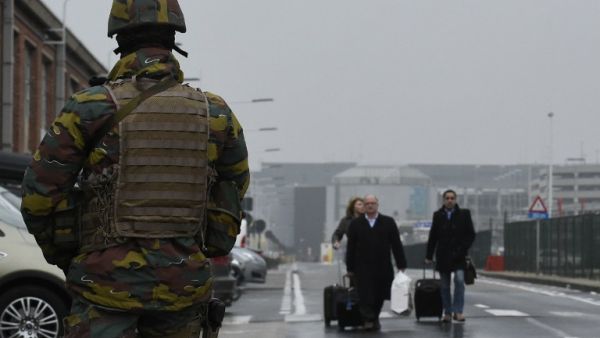Touring the chocolate shops and cobbled alleys in Brussels is on the bucket list for many, but Tuesday’s terrorist attacks are likely to put some travel plans on hold.
Brussels is one of the most-visited places for residents in the UAE. As of 2015, the UAE recorded 13,200 outbound flights to Belgium and 38,000 more vice versa. No other GCC country comes close, with Bahrain, the second-biggest source of visitors, recording only 8,200 trips.
In the wake of the March 22 explosions, analyst and travel industry sources expressed concerns that there will be a decline in travel to Belgium and across Europe. Travel bookings are forecast to dip by 10 per cent to 20 per cent.
Already, government officials have issued warnings against travel to Brussels. The UAE Ministry of Foreign Affairs and International Development has advised UAE nationals not to travel to Belgium, where terror alert has been raised to the highest level.
“The impact of these terrible events on the travel and tourism [industry] is likely to have predominantly short to medium term impact on the development of the industry,” Nadejda Popova, travel project manager at Euromonitor International, told Gulf News.
“The terrorist attacks are expected to slow down travel demand and possibly could lead to a 10 to 20 per cent decline in bookings following heightened fears of further attacks in the city similar to [what happened in] Paris, Madrid and London following the terrorist attacks in these parts of the world,” Popova added.
Multiple explosions that ripped through the airport and downtown metro station in Brussels on Tuesday left at least 30 people dead and dozens injured. The deadly attacks prompted authorities to close the capital city’s passenger terminal, forcing airlines from the GCC and the rest of the world to cancel all Brussels-bound flights.
“The airport remains closed [on] Wednesday. Passengers are to contact their airline for further instructions,” Brussels Airport said on its Twitter account. “[On Wednesday} we’ll evaluate and decide if Brussels Airport will resume on Thursday.”
Dubai-based travel agencies contacted by Gulf News on Tuesday said they expect to receive some cancellation requests from customers who had made bookings to travel to Belgium later this month or over the next several weeks.
“For sure, [incidents like this will sow] fear among travellers. Cancellations may arise in the next days to come,” said one travel agent.
Premjit Bangara, general manager at Sharaf Travel, said the ones that are likely to cancel bookings are leisure travellers, but there will most likely be fewer cancellations from corporate clients.
“In my opinion, this will not affect business travellers, but it will affect tourists as they will be cautious after seeing the media highlight these events,” Bangara told Gulf News.
According to Euromonitor International, total outbound trips to Belgium from the UAE, Bahrain, Kuwait, Oman, Qatar and Saudi Arabia reached more than 29,000 flights in 2015.
The capital city recorded more than three million visitors from around the world in 2014, an increase of nearly 4 per cent on the previous year. “Air travel continued to be a major driver of growth in transportation in 2015 in Belgium,” added Eghbal.
However, Eghbal noted, that the recent attacks are not expected to have a long-term impact because the travel industry in Europe has “proven to be very resilient to such external impacts and recovers fairly quickly.”
By Cleofe Maceda








